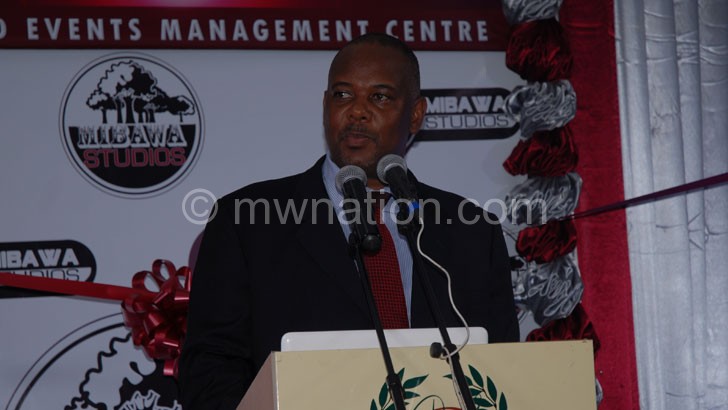Music key to empowering youths
Through Active Youth Initiative for Social Enhancement (Ayise), Mibawa Studios has secured a corporate business deal to form bands as well as record music of young people under Unicef-funded Action for Adolescents and Youth Programme (A4AY) programme. The programme seeks to empower socio-economic rights of young people (between ages 14 and 30) through music career advancement and music-based job creation. HOWARD MLOZI engages Mibawa Limited’s Chief Executive Officer (CEO) John Nthakomwa to shed more light on programme design and its projected impact:

Q: Why is Mibawa Limited involved in the A4AY programme?
A: Mibawa Limited has several companies and one of them is an entertainment company which offers solutions to all entertainment and production needs in Malawi, be it for corporate or individual persons.
In this particular programme, we were approached by Ayise, which is an implementing Non-Governmental Organisation [NGO] of Unicef for its A4AY programme, to discuss an opportunity for us to do the music recording and band formation for the youth. They believe that today, there are several young people who are idle and losing opportunities in life despite having rich talents in music. The programme also seeks to create a form of employment for the youth through music career.
Q: How have you designed the programme?
A: Within the A4AY programme, we have two programmes; first one is a recording programme whereby choirs and bands that already have their songs/albums will come to Mibawa studios to record their music under the sponsorship of Unicef so that they can have their albums on the market and help them to generate income. And the second programme is band formation where we have different individual artists who will be grouped as bands which will be holding live performances to make their ends meet.
We are looking forward at forming nine bands with six members each.
Q: It is believed tha today, producing music is easy with the advent of technology. So, how have you designed your marketing and distribution strategy of such products?
A: When we decided to go with them on the programme, we had already, for some time, looked at the opportunity of creating a TV talent show which could be used as a way for the youth to compete against each other and market their products.
Q: So far, what are the issues emerging from the auditions?
A: As of 4th July, we have carried out sixth auditions. We did Thyolo, Luchenza, Machinjiri, Chilomoni, Ndirande and Chilobwe. But what we have seen is that the level of skill in music among many Malawian youth is very low. The reason is simple; if we are to compare with our neighbouring countries; they start learning music in schools that have facilities to enable a systematic progression of their careers.
But for now, with all these auditions we have done so far, it is not easy to get guitar players. The reason is that most people today find it easy to play keyboards because they are readily available in the church where most young people learn music. This is the reason why we have more drummers and keyboardists than guitarists today.
We have also observed that the skill level on voice and instruments in general is very low.
Q: How do you intend to resolve such challenges?
A: We have tailored our programme in a way that will see those that will come into the band formation undergoing a three-month orientation at Mibawa studios.
During this period, they will be provided with different instruments such as guitars to practice and trainers. We hope that by the end of three months, we will be able to bring their skills to a certain level. We also hope that the TV talent show will help to create competitiveness among young artists.
Q: Have you succeeded in the first phase of your programme?
A: The response has been overwhelming. We have auditioned over 200 young people. However, the biggest challenge remains the low skill level, meaning that out of the 200 there are few people that we can select into the next phase.
We are looking at forming nine bands with six members each. But so far, we are not going to be able to make the complete nine bands because we had limited talents on the areas of guitar, voice and keyboards. The ones that produced voice that we feel is mature are limited. But we hope the second phase will attract competent contestants.





